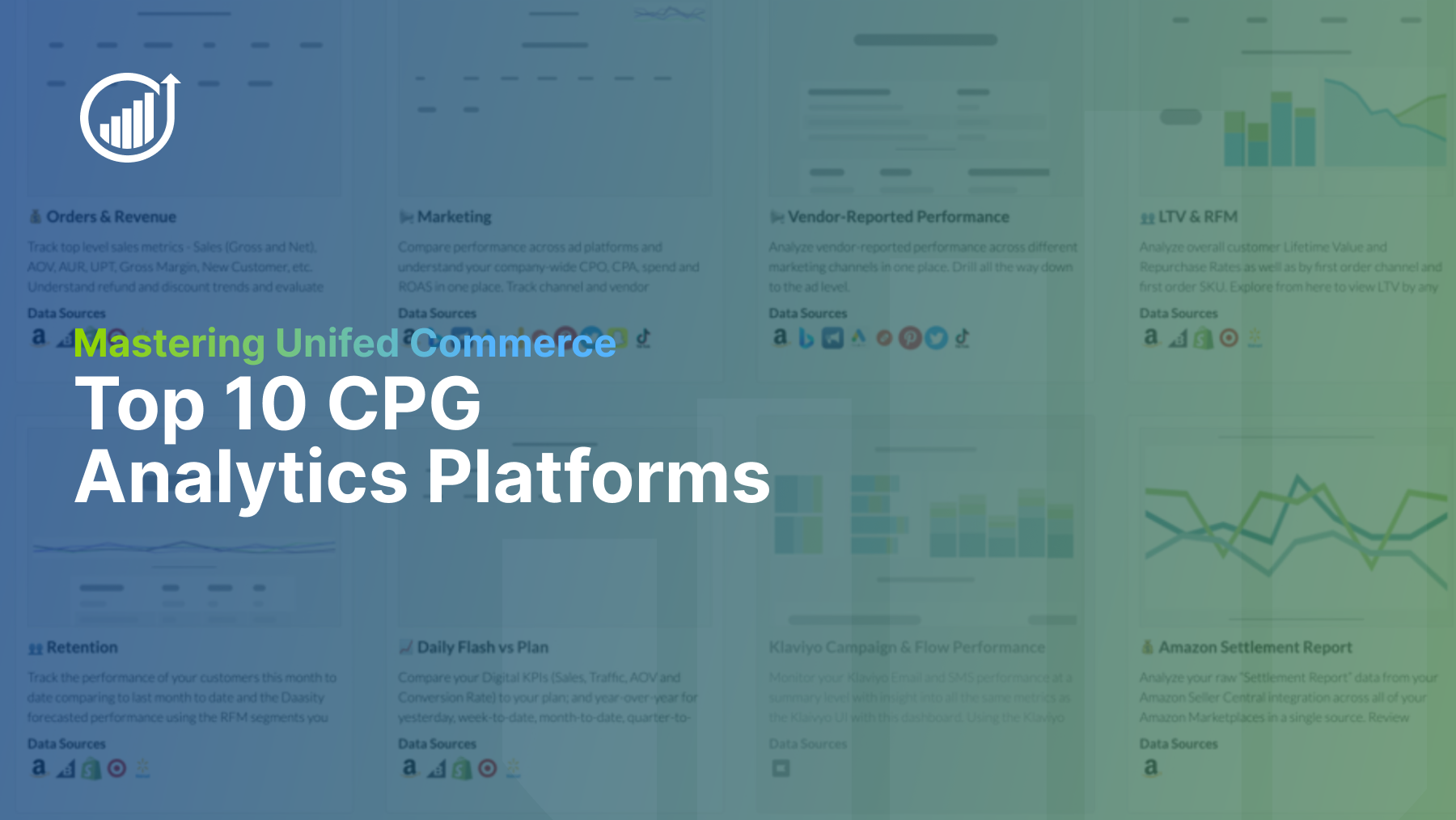With so much information at our fingertips, how do we know what really matters? Key Performance Indicators, or KPIs, show you what's working, and where you need to improve. Selecting and focusing on the right ones is critical to success. Let's dive into why KPIs are so crucial for business growth, and the four characteristics all great KPIs share.
KPIs Matter: Here’s Why
Key Performance Indicators are more than just numbers on a dashboard—they're like a report card for your business.
By tracking the right KPIs, you gain a clear picture of your company's health and performance. This insight allows you to make data-driven decisions, allocate resources more effectively, and quickly identify areas that need attention.
KPIs also help align your team around common goals, fostering accountability and driving motivation. For investors and stakeholders, KPIs provide concrete evidence of your business's progress and potential.
In short, the ability to measure and act on key metrics can be the difference between thriving and merely surviving.
But here’s the thing: these benefits only materialize if you're tracking the right KPIs for your specific business needs and goals.
What Makes an Effective KPI?
It’s tempting to fall into the trap of measuring everything you can. Some businesses sporadically track hundreds of random data points, hoping to stumble upon valuable insights. However, this approach often leads to information overload and analysis paralysis.
The key to success isn't in measuring more, but in measuring what matters. By being selective and focusing on the right metrics, you can gain clear, actionable insights that drive your business forward.
So, what should you be measuring?
Great KPIs share four key features:
1. Quantifiable and measurable
You should be able to assign a specific number or value to the KPI. This allows for objective tracking over time.
Example: Website conversion rate (2.5%) is measurable, while "improved customer satisfaction" is not specific enough.
2. Directly aligned with business objectives
Each KPI should clearly connect to a key business goal. This ensures you're focusing on metrics that truly matter to your company's success.
Example: If your goal is to increase online sales, tracking website traffic and conversion rates aligns directly with this objective.
3. Actionable through strategic decisions
Effective KPIs focus on outcomes you can influence through your actions. While top-level metrics (like revenue) are important, it's helpful to break them down into actionable components. You can't directly control broad outcomes like total revenue or orders, but you can influence the factors that lead to these results.
Example: Average order value is actionable because you can influence it through strategies like product bundling or offering free shipping thresholds.
4. Timely and predictive
Ideally, KPIs should reflect the current state of your business and provide insights into future performance. Consider the latency of the metric—how quickly it reflects changes in your business. Metrics with shorter latency periods are generally more useful for making timely decisions.
Example: In retail, foot traffic is often used to estimate sales because it provides immediate insight into potential revenue, rather than relying on historical data like last quarter's sales figures.
Tracking KPIs Effectively
If you're still tracking KPIs in spreadsheets or doing manual work to gather your data, it might be time for an upgrade. Check out the Daasity platform—it allows you to track important KPIs automatically, saving you time and reducing errors. With Daasity, you can focus on analyzing insights and making decisions, rather than getting bogged down in data collection and management.
Putting KPIs to Work for Your Business
Understanding these fundamentals is just the beginning of your journey to becoming a data-driven brand. By choosing the right KPIs, you create a framework that allows you to measure progress and make smart, informed decisions.
Want to dive deeper into the world of KPIs and learn how to apply them to your specific business needs? Check out our comprehensive "KPI Handbook: Measuring Metrics That Matter." This in-depth guide covers everything from building a solid KPI framework to tracking specific metrics for customer acquisition, retention, and engagement.
Download the KPI Handbook today and start measuring what truly matters for your business success.






